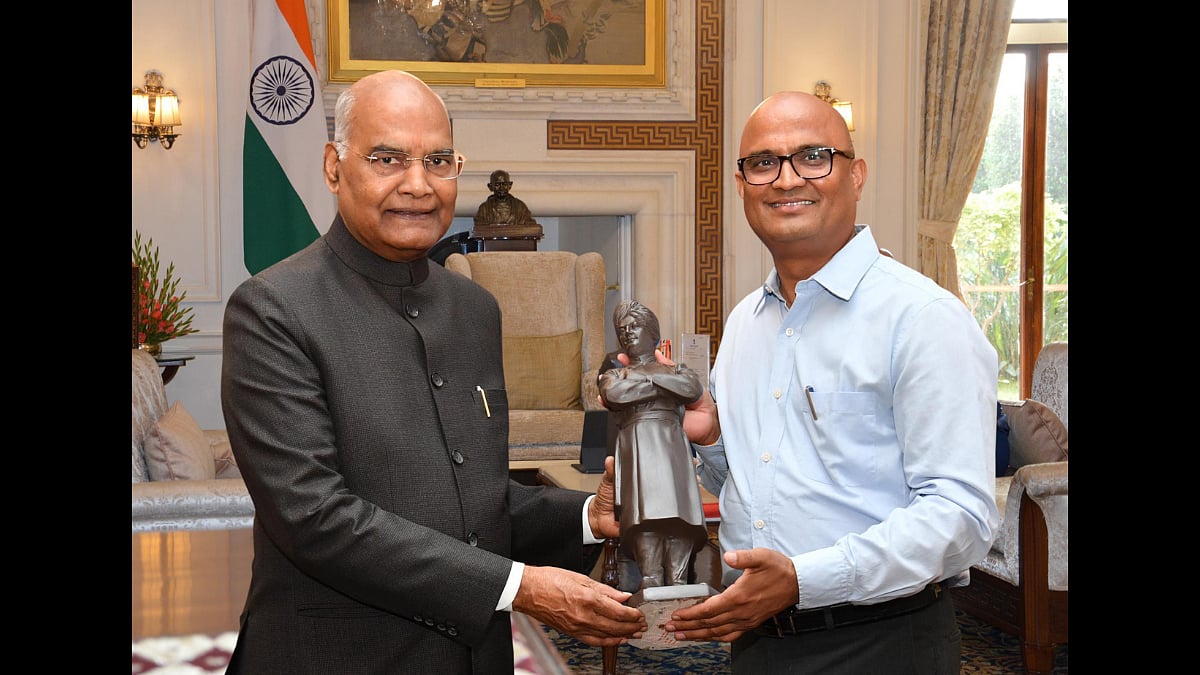Just a couple of weeks ago, Instagram added pronouns to their profiles. Now, in several countries, users can choose how they’d like to be addressed. A lot of cis-gendered people (those who identify with the gender they were born with) don’t understand why this is important. It is, because it prevents the ‘othering’ of those whose identity may be different or more complex than the binary stereotype of male and female and want to be addressed using non-binary pronouns such as they/them/ their or ze/hir/hir. Remember the non-binary character Adira and the trans man named Gray in Season 3 of Star Trek: Discovery?
The terms trans or non-binary or gender fluid encompass a range of identities and pronouns, which include those who are not the gender they were assigned at birth. And even these words and labels are limited, and do not come close to spanning the scope of gender identity and expression. Many international colleges now have primers on the correct terminology that can be used and how to incorporate this way of thinking and behaviour in our daily lives. For example, one of the basics they prescribe when meeting someone new is to ask their name as well their pronouns. It’s essential to recognise that everyone has pronouns — not just trans people — and that asking pronouns is very important, both so someone is not misgendered and so that trans people are not the only ones who will feel the need to share their pronouns.

While this may be too relatively new (and perhaps considered ‘too politically correct’ except in some circles) in India, it is certainly how language needs to expand eventually to keep up with the times. Attribute it to social media or a growing social conscience, but more and more people are getting ‘woke’ today. Not just on gender, but discrimination against race, religion, caste, class, age, size, or any other way a person is treated as less equal than another.
But, wokeness, as good as it is, has its pitfalls too. The rise and rise of a new woke vocabulary could lead to analysis paralysis, where you’re so lost in the process of figuring out whether your words and actions are appropriate that you don’t land up saying or doing anything at all! There’s also aggressively woke eating, where someone chooses only ‘clean’ ingredients and ‘superfoods’ while avoiding entire food groups for health or ethical reasons. Similarly, while slow fashion is a very positive trend, some misguided millennials have mistakenly decided to burn their clothes in an effort to ‘save the planet’!
Wokeness as a malaise has started to affect organisational culture too, where a business tends towards tokenism and fulfils a ‘quota’ of employees from minority groups just to ‘appear’ to check all the boxes rather than actually have a vibrant and diverse work force. Sometimes the shift may seem a trifle ludicrous — like renaming Easter Eggs as ‘Spring Spheres’ to take away the religious overtones, which is a path that leads to a very homogenous society, bereft of cultural give and take — but it might just make the difference to a child at school who is participating in an egg hunt but unsure what it means as Easter isn’t something they celebrate at home.
I’ve also seen companies and even individuals using wokeness to peddle their products and their personas. It’s easy to use this brand of pretentious wokeness or ‘virtue signalling’ to push something, because few people would have the presence of mind (or spine!) to call you out on the hypocrisy of using something that’s for the general good for commercial or personal gain. Like advertisers who start a hashtag campaign to ‘support’ a cause, but are subtly creating brand recall for their clients in your mind. Or a Facebook post that someone creates just to showcase their wokeness. Or how a whole host of extremely articulate woke warriors will lambast some hapless unenlightened soul who responded to a post with an inappropriate comment and quickly disappeared, but the vitriolic wokeness continues for days.

Excessive wokeness has also given rise to ‘cancel culture’. This is where someone, usually a celebrity, is unfollowed on social media, their products or performances boycotted, and where they are, in effect, ‘cancelled’ because of something they said or did that went against what is deemed socially acceptable. An episode in Season 1 of the Australian satirical series Why Are You Like This has a hilarious take on this theme when a woman famous for drawing cute cat illustrations is cancelled by her ‘extremely online’ fan base because they discover an Instagram picture of her cat using a dirty kitty litter tray!
No wonder then that social justice scholars Tehama Lopez Bunyasi and Candis Watts Smith, in their 2019 book Stay Woke: A People’s Guide to Making All Black Lives Matter, argue against what they term as ‘Woker-than-Thou-it is’. They write, “Striving to be educated around issues of social justice is laudable and moral, but striving to be recognised by others as a woke individual is self-serving and misguided.”
Perhaps because of such overuse and desktop activism, it has even started to be used as a pejorative, where the use of woke can be a political tool or slur! To quote an article in The Guardian last year, “Like ‘politically correct’ before it, the word ‘woke’ has come to connote the opposite of what it means.”
Balance in this, as in most things, is everything.
(The columnist is Associate Editor, Travelgram, and a bespoke Mumbai tour specialist. Find her on Instagram and Twitter @priyapathiyan and @thehungryhappyhippy on Facebook. She blogs on thehungryhappyhippy.com)











